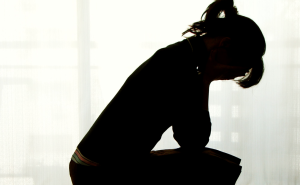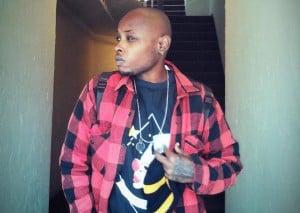
Sad person shedding a tear on the street.
This article was originally published in The Establishment and republished here with permission.
Content warning: descriptions of sexual violence
Recently, I email interviewed other survivors of incest — people who were sexually traumatized by family members during childhood. What I found is that each survivor had worked through a journey, a detective’s case of their own life, to navigate how the abuse happened to them.
When I was 25 — spurred by triggering incidents and my first foray into therapy — I launched my own investigation into why I’d always felt a “sickening awareness,” as I’d read it once described. My discovery: I’d been sexually assaulted during childhood.
An image of my mother raping me as a kid had haunted me since I’d recovered the memory, though I couldn’t make sense of it, or place where it was from. As emphasized during my many interviews with survivors, trauma memories — sometimes remembered since the event of abuse, or sometimes later recovered — can operate differently than normal, more narrative memories.
According to the Sidran Institute for Traumatic Stress Education & Advocacy:
People may use their natural ability to dissociate to avoid conscious awareness of a traumatic experience while the trauma is occurring, and for an indefinite time following it. For some people, conscious thoughts and feelings, or ‘memories,’ about the overwhelming traumatic circumstance may emerge at a later date.
Absent easy-to-surface recollections, I pieced together the facts through context clues: My mother often drank to blackout status, my father was often away on business trips, and, tellingly, I developed insomnia and anxiety around the fourth grade, when I realized this incident must have happened. There was, I recognized, an iceberg of memories beneath the surface of my life — recollections of my mother making inappropriate jokes about my genitals, and touching me in ways and places that made me feel uncomfortable. Meanwhile, I’d always felt that “sickening awareness” — the feeling that I absolutely had to avoid this person, my main caretaker, as much as possible.
When I emailed survivors, I did so to find out about the other detectives out there, working to make sense of something terrible that happened. I wanted to find out how they came to realize they’d been abused, and how they’ve worked towards healing. And I wanted to start a dialogue around a form of abuse that society has stigmatized and avoided discussing for far too long.
***
Paul*, a gay man, was raped “semi-regularly” by his brother, older by five years, between the ages of 6 and 9. When I reached out to Paul, he laid out the debilitating impacts of childhood abuse:
With healing from other kinds of trauma [from adulthood], you can have a clear idea of who you were ‘before’ that you want to heal to return to. Healing for incest survivors can be much more confusing if you delay it until adulthood, because you have no idea who you are aside from the ‘broken,’ traumatized version of you.
Childhood abuse happens at crucial stages in development, throwing that development into disarray. Growth happens in safe environments, and incest creates an environment of terror.
Reading emailed stories from other incest survivors for this piece has given me a glimpse into the particular horrors that other survivors have dealt with. Laura*, a young trans woman, described home life with her abusive father:
He seems to have a complete lack of empathy or ability to understand other people, and he also has a lifelong obsession with sex and other people’s bodies. He also, unfortunately, has a mean streak and is extremely controlling. What this added up to, in our case, was that he took control of every aspect of our lives — my mother, my brother, and I were completely under his thumb at all hours of the day. He told us when to shower, use the bathroom, sleep, wake up, how to use our time. My bedroom door didn’t even close all the way. If any of us locked the bathroom door he would pick the lock and get angry. He showered with my brother and me until we were way too old — like 7 or 8. He insisted on washing our bodies thoroughly, including peeling back our foreskins and washing our dicks with a rough washcloth (I got lots of penis infections as a kid — my brother got so infected that he had an emergency circumcision when he was 7).
As is common with these experiences, Laura did not classify her story as abuse until much later. “I didn’t think of my dad’s behavior as abusive until I was out of college. I would say, ‘I have a strict dad,’ or ‘My dad is kind of controlling,’ but I completely lacked context about how unusual and terrible my childhood was,” she said. “It wasn’t until I was married that I started realizing the extent of his abuse. For example, I would tell my wife that my dad and I ‘showered together,’ without realizing that she thought I was saying that we would stand in the same shower and take turns. When I eventually clarified what I meant by ‘showering together,’ she was horrified.”
Similarly, Jun, a young trans man, described not realizing until much later that he had been raped by his cousin:
During a summer vacation to visit my grandparents, when I was 14, I was raped and filmed by my 17-year-old cousin […] Later in my life, I realized how much she had groomed me both before and after the rape. I think I always knew what she did was wrong and violating, but it took me until I was about 17 when I realized that she had raped me.
When a survivor takes legal recourse against their assailant, the criminal “justice” system typically takes the side of the abuser. RAINN states that “Out of 1,000 rapes, 994 perpetrators will walk free” (not that, with the prison-industrial complex as it is today, prison is any kind of solution).
As Laura said, “It’s not like I could put a camera in the fucking room!” Ma’at Crook, another survivor, echoed this frustration:
I was molested by my biological father the first 18 years of my life. I reported the abuse to the police when I was 24 years old. And, while my case was not typical in how long it dragged on (nine years), it is typical in that the case did not make it to the courtroom. The DA cited three common reasons for not going forward with the case — it was a ‘he said/she said’ case, ‘with no physical evidence,’ and due to ‘the CSI effect.’ The CSI effect, I was told, is used to describe the jury’s expectation to have DNA proof thanks to shows like CSI, despite how rare that is in reality.
Underlying all this is the fact that sex-related violence, especially when it involves family dynamics, is uniquely stigmatized in our society. A 2007 study by cognitive psychologist Dr. Leda Cosmides found that people are repulsed by incest out of biological necessity — this instinct deters us from producing sick offspring. This aversion may, in turn, make people less likely to address and combat incestual abuse.
Andrew*, a trans man, told me how difficult it is for people to accept that this kind of abuse happens:
I think [incest] is more fraught because it involves family dynamics, which are always complicated. It’s hard to make a boogeyman out of someone who cuts the Thanksgiving turkey, who isn’t a rapist hiding in the bushes. I wish people understood how much of this kind of abuse actually happens in America today. It is absurdly, obscenely common, and continues because of a lack of education about consent for children. The culture that insists children hug the uncle they don’t want to hug assists abusers by telling children that they must always do as their elders say.
Incest is, indeed, “absurdly, obscenely common”; 43% of child sexual abuse is perpetrated by family members, and it is the most commonly cited form of child abuse.
For all those struggling to build a better life post-abuse, the road is long, often marked by depression and anxiety — and the journey may not have an end. But healing is possible. As Jun told me:
I think I still have a very long way to go to recover, but there have been a number of ways that I’ve been able to grow and look past my abuse. Coming to terms with being trans was a big part — being raped really fucked with my ability to rationalize my gender. I also began to seek therapy. For many years I was a chronic self harmer, and am now about six months free of self harm. I started smoking weed to deal with flashbacks, and it helps tremendously.
Crook, too, has been able to find some peace; “Despite my case not going to court, I still feel like I won; I no longer keep the abuse secret and my biological father knows that.”
As for my own survivor story, I’ve found comfort in many things that my open, generous, and brave interviewees did: therapy, psychiatry, (in my case) weed, opening up to friends, and (again, in my case), cutting off contact with my abusive parents. If as that cliche moment in Fight Club goes, “our fathers were our models for God,” then incest means dealing with a supreme detachment from any concept of God. It means learning to see ourselves as lovable and whole, when we’ve been taught the opposite during the most vulnerable time of our lives, by those who are meant to protect us the most.
Incest’s message is that the victim does not matter; that their experiences are invalid and that their body is to be used by others without consent. Survival and thriving teaches us the opposite: Our stories are ours to write, and our bodies are our own.
*Name has been changed.
[do_widget id=’text-101′]
Annie Mok is a cartoonist, writer, illustrator, Rookie contributor, singer in See-Through Girls. See more of Annie’s work here: heyanniemok.tumblr.com.
Search our 3000+ articles!
Read our articles about:
Our online racial justice training
Used by hundreds of universities, non-profits, and businesses.
Click to learn more




















